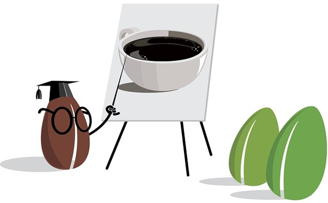You are looking for that perfect cup of coffee, but you want the taste, not the jitters. That’s where a delicious cup of decaf coffee for your pour over comes in; all of the taste without the side effects. If you love coffee but want less caffeine, then you may have some questions about decaf coffee. Today, we will walk through the potential health benefits, decaffeination process, and whether or not decaf has caffeine.
Health Benefits of Decaf Coffee
The debate about whether or not decaf coffee has benefits is one of the most disputed. Opinions from medical professionals, dieticians and nutritionists vary quite a bit. What decaf coffee does, however, is remove much of the potential issues associated with caffeine, namely anxiety, insomnia, muscle tremors and more. The coffee for your pour over can also have beneficial impacts as well. Some studies have suggested that decaf coffee can help lower your risk of heart attack and stroke, or reduce the risk of developing type 2 diabetes.

How Decaf Coffee for your Pour Over is Made
Decaf coffee follows a very similar process to regular coffee in how it is grown, harvested, roasted and delivered to people. For those who are invested in coffee, it is important to understand just exactly how decaf coffee for your pour over comes to be, so let’s look at the process.
It turns out that there are several ways to turn regular coffee into decaf coffee for your pour over. The most popular method by far, however, involves soaking the coffee beans not long after harvest while they are still green. There are two chemicals used in this process: methylene chloride or ethyl acetate. The first is very powerful in its concentrated form, often used in paint thinner, but in this process it is completely safe to use for removing caffeine from the beans. Ethyl acetate is also entirely safe and quite commonly known as citric acid. In both these instances, a soaking in the solvents works to break down the caffeine particles while retaining the rest, leaving a decaf coffee that still has flavor.
Does Decaf Coffee have Caffeine?
You want to know everything about what goes into coffee for your pour over. That includes whether or not your decaf coffee does, in fact, contain any amount of caffeine. The simple answer is yes. Decaf coffee of all varieties does have trace amounts of caffeine. It is why it is called “decaffeinated” and not “uncaffeinated.” While the decaffeination process is quite thorough, there is simply no way to absolutely guarantee that there is no caffeine in decaf coffee.
If you want that perfect cup of coffee, then you need to try a pour over. This method, using one of Kajava Mama’s ceramic pour over coffee makers, gurantees the rich flavor of your coffee. We are dedicated to making the perfect cup. Our pour over works for decaf if you want to avoid the side effects of caffeine.
Click here to learn more.